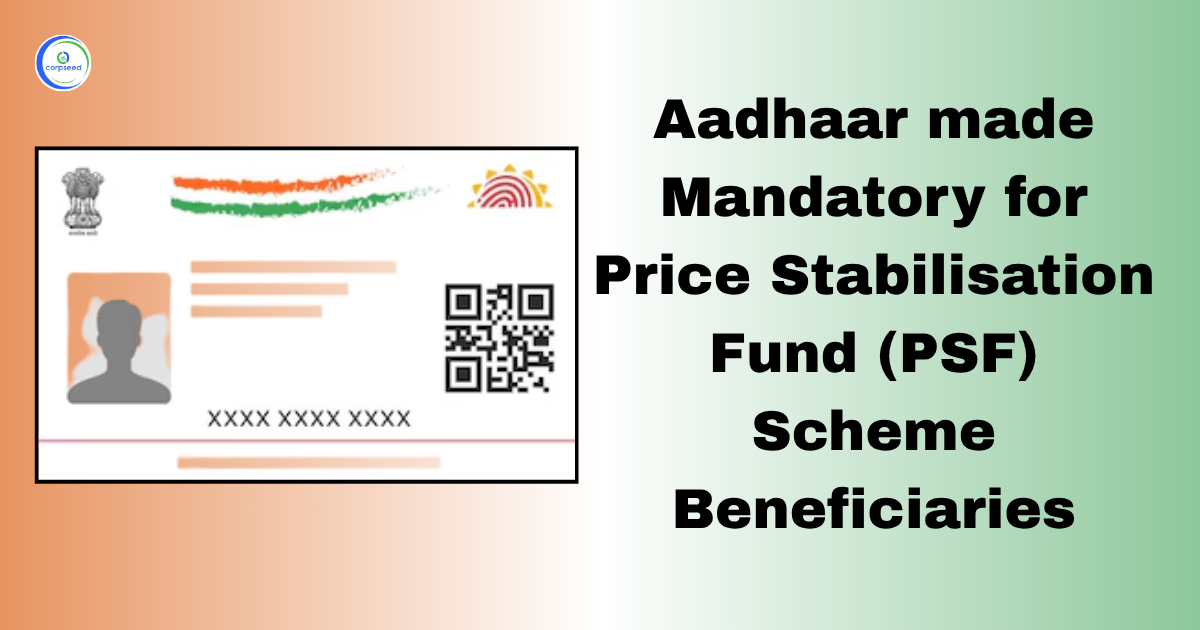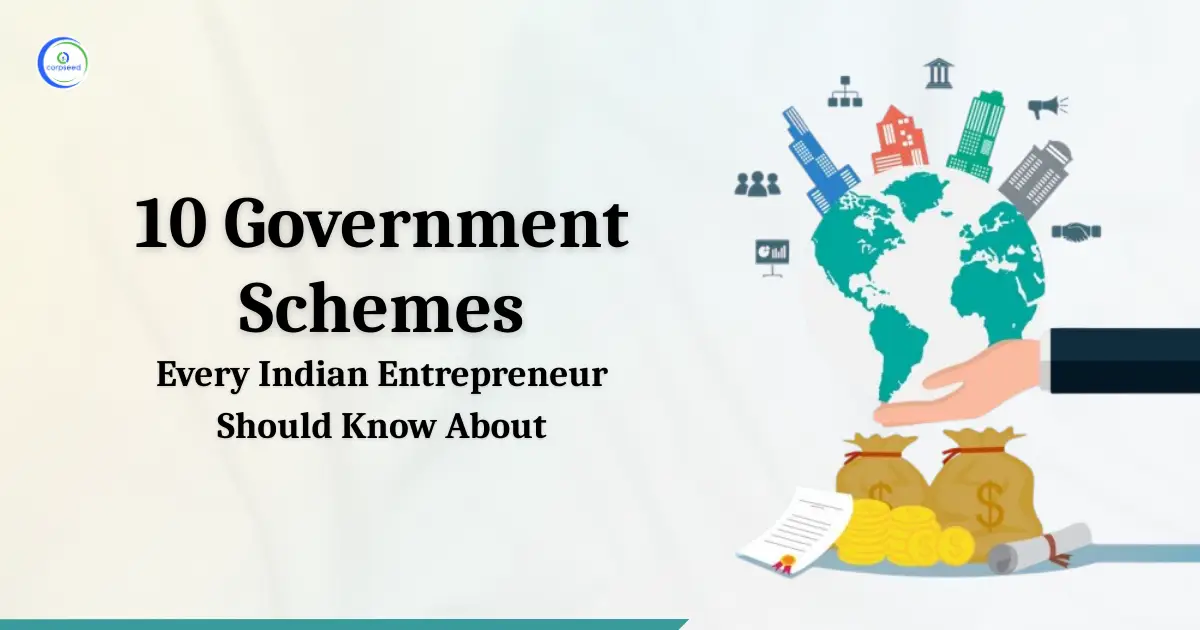Non-Governmental Organization: Sources of Funding
The operation of an NGO is largely dependent on the existence of numerous sources that provide it with funding. All the aligned goals of the NGO are duly executed by utilizing these sources.
Table of Contents
- Non-Governmental Organization: Sources of Funding
- The Various Types of Funding Received by NGOs
- What Problems Can an NGO Face with Respect to Alternative Financing?
- NGOs Funding: Are There any Initiative at the Government’s End
- NGO DARPAN: Benefits of Getting Registered
- DARPAN Portal: What Documents Need to be Submitted for Registration?
- DARPAN Portal: What is the Registration Procedure?
- Conclusion
--------------Blog Contact Form-------------
To be put in Crip's words, it can be said that there is a direct correlation between the funds being received by the NGO and the operations being carried out effectively by it. This would ensure that there is no hindrance in the functioning of the NGO.
On a broad basis, the funding can be sourced from the following entities:
- Requisite funds can be sourced from the way of selling the goods or even putting the services on sale.
- The entities whose foundation is based on philanthropic aspects can significantly provide the NGOs with much-needed funds.
- Donations can be fetched from private entities.
- Funds can also be raised from the relevant authorities which can either be central or localized in a state.
The major chunk of the funding as received by the NGO comes from the individual parties. Besides this, the people in the higher strata in society make timely contributions which hold real importance for the NGOs. Even small donations play an instrumental role in fulfilling the desired goals of the NGO.
Funding from government sources holds due prominence for the functioning of any NGO. However, it presents a bit of a tricky situation since such funding can be driven by political motives and would not take into account the need to integrate the goals of social welfare.
The Various Types of Funding Received by NGOs
Given below are the types of funding that can be utilized by the NGOs:
- Fundraising on a General Basis:
This type of funding includes under its umbrella the income that stands unrestricted and runs for a short term. To exemplify we can call out the profits received by raising the events and also the donations received from the public.
Such type of funding can prove beneficial when it's about the reserves that need to be built up or if it is related to gap funding.
- Project Funding:
This includes the short-term funding which comes from the agencies that donate, mostly they are well institutionalized. These funds find their basis with respect to a specific project and last for a maximum time period extending up to 3 years. This is one of the commonly used methods to help finance any NGO.
- Program Funding:
This type of fund entails fewer restrictions and is generally for a longer period of time. The funding partners are the ones that yield the funds wherein the grants are founded on the themes with respect to the programs.
- Core Financing:
This type of funding entails flexibility and the NGO can relatively rely on it since it is likely to be employed for the purpose of executing the core operations. This funding ensures that the NGO is financially sound at all times.
What Problems Can an NGO Face with Respect to Alternative Financing?
- The approach in the nature of entrepreneurship
For NGOs who are seeking to attain financial stability, for this purpose, a business-like approach needs to be adopted by them. The traditional method of forging the funds as used by the NGOs finds its foundation on the need to allocate resources through the means of external funding.
Read Our Blog: Why Should One Resort to Running an NGO in India?
There has to be a reassessment with respect to the beliefs that must be carried out at a fundamental level. Usually, the scenario is such wherein there is a lack of adequate methodologies as practiced by the staff and when it concerns the culture that is embraced by the NGO, it can be said that it runs in opposition to that of the organization that works for profit.
It is followed by the risk wherein the staff can be driven out owing to such a change that is brought in the organization and its related strategies.
- The motive to Generate Income
There has to be a genuine concern with respect to attaining self-sufficiency. Most of the NGOs view such a move as entailing an approach that runs on ‘packaging’. The decision of the NGO must be in line to pursue the respective route that follows alternative financing. A strategic approach must accompany such a route together with a thorough process to carry out a plan.
- Would there be any impact on the culture of the organization?
On a usual basis, when it comes to NGOs, they uphold the flag of social values which is commonly embraced and shared on a mutual basis by all the staff members. There might occur a situation wherein the core values can be threatened when such changes take place.
Most of the NGOs, when it comes to business entail the kind of a view that is very much hostile. This is owing to many factors which can either be political or historic. In addition, the staff members must not have adequate exposure concerning commercial practice.
Some of the NGOs foster to give birth to developing altogether a separate entity whose ultimate motive would be to raise funds. This practice promises to prevent exploitative practices to take effect which can in turn affect the organization as a whole.
- The scope of personal problems
A challenge can surface concerning the management of the staff members since they can have varied background differences. It is very much an evident practice that the new staff would be hired by the NGO so that the fundraising aspect could be overlooked. Financial management can also be taken care of.
The problem might arise when there would be difficulty faced by the new staff members to adjust to the new decorum, especially the ones that are comfortable in sticking to the conventional form of practices.
- Are there any considerations entailing legal and political aspects?
The legal status of the NGO might accrue ambiguity when the level with respect to self-financing faces an increase. There are numerous legal exemptions that are enjoyed by the NGOs since they are an organization that works for a non-profit. This can include the regulations pertaining to taxation.
However, if there is any unclear impediment that shows up in the environment in which the NGO operates, then in that case it would act as a deterrent to the strategies that deal with alternative financing.
Concerning the political aspect, the NGOs can sometimes be criticized as being profit driven and this can seriously hamper the relationships with that of the business-oriented communities.
Such practices must be inculcated that follow transparency and are committed to strategizing public relations in a healthier way.
NGOs Funding: Are There any Initiatives at the Government’s End
There have been many initiatives launched by the government revolving around the effort to raise funds for the NGOs. One such initiative is known as NGO DARPAN which works through an online portal. It ensures that the process of raising funds can catch speed. Together with this, it pumps up the status of the NGOs.
This platform facilitates the coordination between the NGOs and of the other sectors. The national informatics center is the forefather authority that launched this initiative with the assistance of the NITI Ayog.
With the help of such a platform, necessary details are exchanged between the NGOs and other entities like that of government departments and firms that work on a voluntary basis.
Once the NGO gets registered with this portal, this will open avenues for them to get hold of the government schemes and the necessary grants as launched by the government.
NGO DARPAN: Benefits of Getting Registered
There are numerous benefits that come along following the registration of the NGO with the DARPAN portal. Some of them have been given below:
- The very first benefit shows up in the form of helping the NGOs so that they can easily forge interaction with the appropriate departments of the government.
- This portal enables the NGO sto fetch an ID which is unique in itself. This would impart strength to the NGOs functioning and uphold its credibility and integrity.
- This portal entails coordination from the departments at the ministry level. The exchange of vital information takes place via this.
- Next benefit ensures that there is no hindrance when it comes to the flow of data from point to point.
- This portal facilitates the registered entity with the details pertaining to the recently launched government schemes and also the progress of the prior initiatives can be tracked.
- This portal also helps the various departments of the government to take note of the details of a certain NGO so that accordingly its demand can be well contemplated before being granted.
- A database can well be created with the help of this portal that would consist of all the details pertaining to the NGOs.
DARPAN Portal: What Documents Need to be Submitted for Registration?
Any NGO can apply for registration to the DARPAN portal. Given below are the documents that must be submitted for the purpose of registration:
- In the first place, a copy must be submitted regarding the NGO registration certificate either in PDF format or even in JPG format.
- Next in line, the PAN card must be submitted in relation to the NGO.
- Aadhar card must be submitted with respect to the three members present in the executive committee.
Given below is the information that must be furnished while filing for the registration online:
- The permanent account number must be clearly mentioned in the first place.
- The Ngo's name must also be mentioned in the online details.
- It must not be forgotten that the address of the NGO should be filled out.
- The name of the registration authority should be included together with the registration number.
- The date of the registration needs to be specified.
- Also, the details must be specified with respect to the 3 members who are present in the executive committee.
- Last but not the least, the details must be mentioned with respect to the funding as received from the government and also regarding the working area that works primarily.
DARPAN Portal: What is the Registration Procedure?
NGOs have been put under the compulsory hammer by the government to get registered through the online portal. This mandate has been brought into effect in 2019, in the month of December.
In order to acquire the registration pertaining to FCRA, an NGO certificate would be needed by the requisite NGOs. Once the NGO certificate has been fetched, then it would open up the avenues to get hold of government permits.
Chalked down below is the procedure that must be followed in order to apply for registration:
- The very first step pinpoints visiting the official website of the NGO DARPAN, which is the online portal for facilitating the funds-related activities.
- Proceed for signing up and get hold of the login credentials with the relevant username and the associated password.
- Thereafter, select the option of registration and specify the requisite details with respect to the NGO.
- Next, the contact details must be furnished along with the details of the PAN card.
- Forge a new password after the OTP has been received on the registered contact number.
- After logging in to the portal, the registration details need to be specified.
- In case, you wish to have multiple registrations, then additional information is to be provided.
- Choose the appropriate sector pertaining to business and following this, furnish the details in the achievements section.
- Last but not least, do not forget to specify the valid address.
Conclusion
In a nutshell, it can be concluded that there is no shortage of sources from which NGOs can fetch funding. Quite recently, the year 2020 witnessed the incoming of the rules with more strict compliance in the purview of the firms seeking to get funding from sources located overseas.
The newly included rules put forth that any firm who wishes to get registered under the garb of the Foreign Contribution (Regulation) Act must entail the requirement of having spent Rs fifteen lakh on a minimum basis in respect of the core activities that have been carried out during the span of preceding three financial years.
This portion of the site is for informational purposes only. The content is not legal advice. The statements and opinions are the expression of author, not corpseed, and have not been evaluated by corpseed for accuracy, completeness, or changes in the law.
BOOK A FREE CONSULTATION
Get help from an experienced legal adviser. Schedule your consultation at a time that works for you and it's absolutely FREE.




_for_Compressed_Biogas_(CBG)_Corpseed.webp)




